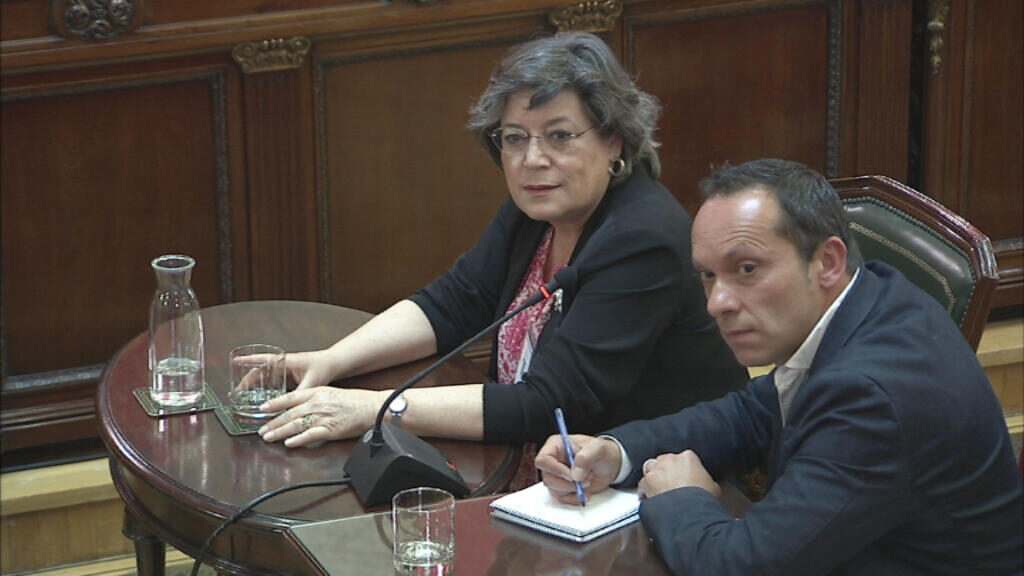29.04.2019 - 15:24
|
Actualització: 29.04.2019 - 17:24
Two Members of the European Parliament (MEPs) gave testimony in this morning’s session of the referendum trial, hailing Raül Romeva as a “defender of human rights” and assuring that the Catalan leaders pushed for an agreed referendum solution. Ivo Vajgl, MEP for Slovenia, and Ana Gomes, MEP for Portugal, were both called to the Supreme Court by the defenses of Oriol Junqueras and Raül Romeva.
Vajgl was first to speak to the court, explaining that he considers Romeva a “defender of human rights” and that their relationship involved conflict resolution. “I’ve always said that Mr. Romeva has always acted peacefully, defended dialogue, and that he has never mentioned violence as a way to resolve a problem”, Vajgl told the court.
“We were collaborating about issues of peace and war in Syria and the Middle East”, the former Slovenian foreign affairs minister explained. “The Catalan question was always present in the European Parliament. Everyone has their own opinion, mine would be to face the issue with dialogue.”
A true democrat
Speaking after Vajgl, Portuguese MEP Ana Gomes took to the stand. She and newly elected member of the Spanish Senate Raül Romeva were both members of a subcommittee of defense in the European Parliament.
“I am absolutely convinced that Romeva is a true democrat and is in favor of human rights. Regarding the issue of Catalan independence, we spoke in private, but he was in favor of dialogue and an agreement”, Gomes told the Supreme Court.
The Portuguese politician explains she didn’t have the chance to speak with Oriol Junqueras or Raül Romeva about the referendum. However she did attend a conference that the Catalans gave on the Catalan question, and possible solutions.
“In that conference, they spoke about a conflict that was already developing. I went to it because the ideas on how to solve it seemed interesting to me. They were pushing for an agreed referendum solution, like what we saw in Scotland,” Gomes explained.
Spanish police violence
After the MEPs, German MP Andrej Hunko spoke in the Spanish Supreme Court. He said that he was invited to Catalonia by Diplocat, the diplomacy council of Catalonia, but affirms that the visit was not to act as an official observer of the vote.
Hunko said the type of visit he made was common among international politicians, and that he didn’t meet with any Catalan politician before or after the vote.
“We wrote a report [on the referendum], making particular mention of the violence from the Spanish police”, stated Hunko. He also added that he paid for his visit to Barcelona personally.


